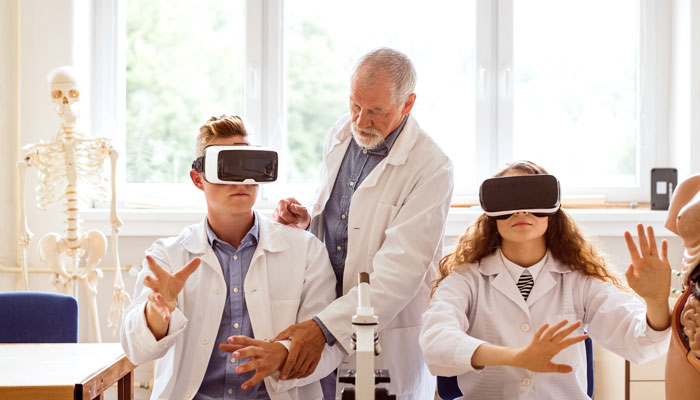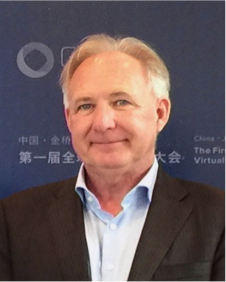IMDEA Networks

How Virtual and Augmented Reality Will Transform Healthcare

Walter Greenleaf, Professor, Stanford University, USA
External Presentation (External Speaker)
The oncoming wave of Virtual Reality and Augmented Reality technology will impact medicine, clinical care, and personal health and wellness.
Although entertainment, social connection, and gaming will drive the initial adoption of VR and AR technology, the deepest and most significant impact of the next generation of VR/AR technology will be to enhance clinical care and to improve personal health and wellness. VR and AR technology will also help facilitate the shift of medicine to direct personal care.
We know from decades of clinical research that VR/AR technology can provide breakthrough solutions that address the most difficult problems in healthcare – ranging from mood disorders such as Anxiety and Depression to PTSD, Addictions, Autism, Cognitive Aging, Stroke Recovery and Physical Rehabilitation, to name just a few.
VR technology can also improve clinical measurements and assessments by making them more objective and functional, and improve medical training such as surgical skill training and procedure planning by applying simulation-based learning principals.
Personal health and wellness will be improved by using VR to promote healthy lifestyles and to reduce stress and anxiety. As the cost of healthcare rises, VR technology can serve as an effective telemedicine platform to reduce costs of care delivery, and improve clinical efficiency.
About Walter Greenleaf

Walter Greenleaf, PhD, is a research neuroscientist and medical product developer working at Stanford University. Walter is known internationally as an early pioneer in digital medicine and virtual environment technology. With over three decades of research and product development experience in the field of digital medicine and medical virtual reality technology, Walter is considered a leading authority in the field.
As a scientist and medical product developer, Walter’s focus has been on computer-supported clinical products, with a specific focus on virtual reality and digital health technology to treat Post-Traumatic Stress Disorder, Anxiety Disorders, Stroke, Addictions, Autism, and other difficult problems in behavioral and physical medicine. He has had a principal role in several medical product companies, including Pear Therapeutics, Virtually Better, InWorld Solutions, Cognitive Leap, and Greenleaf Medical.
Walter is currently a Distinguished Visiting Scholar at Stanford University’s Virtual Human Interaction Lab, the Director of Technology Strategy at the University of Colorado National Mental Health Innovation Center, and Member of the Board of Directors for Brainstorm: The Stanford Laboratory for Brain Health Innovation and Entrepreneurship.
In addition to his research at Stanford University, Walter is Senior Vice President of Strategic & Corporate Affairs to MindMaze. He is a VR technology and neuroscience advisor to several early-stage medical product companies and is a co-founder of Cognitive Leap.
This event will be conducted in English

